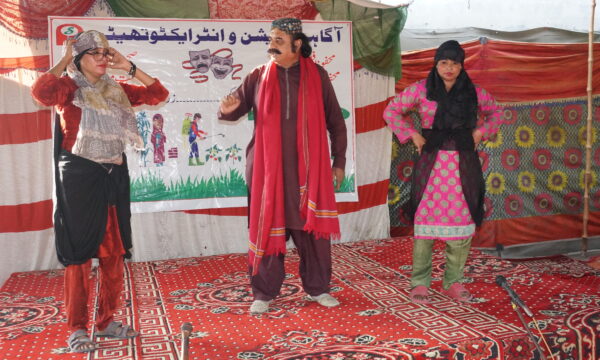Last month, the International Food Policy Research Institute released its 2013 Global Food Policy Report. This report is the third annual report in this series which aims to give an overview of the food policy developments that have affected food security that year. This includes a review of the key highlights of the previous 12 months, the challenges faced and the possible opportunities for food policy in the coming year.
In 2013, the focus of discussion on food policy moved further towards nutrition. With the Nutrition for Growth summit in June, the effort committed to tackling undernutrition gained momentum with more than US$23 billion being pledged by development partners.
Although undernutrition is multicausal, it is a highly political issue. There are no dedicated ministries for nutrition so the governmental arrangements can vary widely between countries. This is why the Scaling Up Nutrition (SUN) movement is so important as it brings accountability to the national leaders of the 50 countries that now participate in the movement. SUN works to support these national leaders and allow them to prioritise and take ownership of the responsibility to improve nutrition in their country.

A demonstration of healthy eating practices to a community in DRC, proving that undernutrition is also being tackled from the ground up (Russell Watkins/DFID)
While governments are seen as the key to policy change, undernutrition is a multisectoral challenge and collaboration and cooperation between sectors is essential. The public sector need to regulate the private sector (e.g. policing violations of the International Code of Marketing of Breast-milk Substitutes) and the private sector should support the work of the public sector. After the recent Typhoon Haiyan in the Philippines the private sector demonstrated their engagement by providing support to the World Food Programme’s relief efforts. Furthermore, Royal DSM are working with World Food Programme to increase micronutrients in their food supplies.
The increased focus on nutrition and food security in the past year has allowed the development community to improve their understanding of what needs to happen and what resources are needed to achieve this. It is now important that the resources pledged are being committed to addressing the issue of undernutrition.
To read more, download the full report from www.ifpri.org/gfpr/2013
To read about how Plantwise is contributing to improved food security, click here.
1 Comment
Leave a Reply
Related News & Blogs
‘Sowing the seeds’ for food security in Uganda: CABI supports training for Quality Declared Seed production
CABI has been working with Zirobwe Agali-Awamu Agribusiness Training Association (ZAABTA), the Ministry of Agriculture, Animal Industry and Fisheries (MAAIF), the National Agricultural Research Organisation (NARO), and Integrated Seed Sector Developmen…
21 May 2025






Reblogged this on environmentwise.